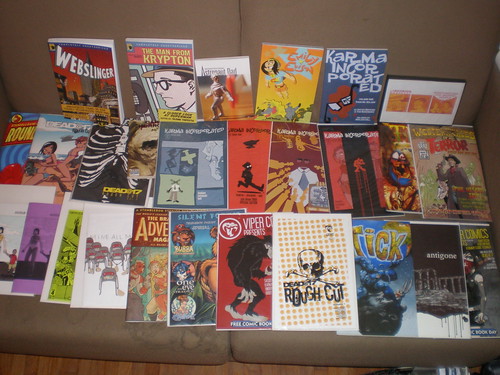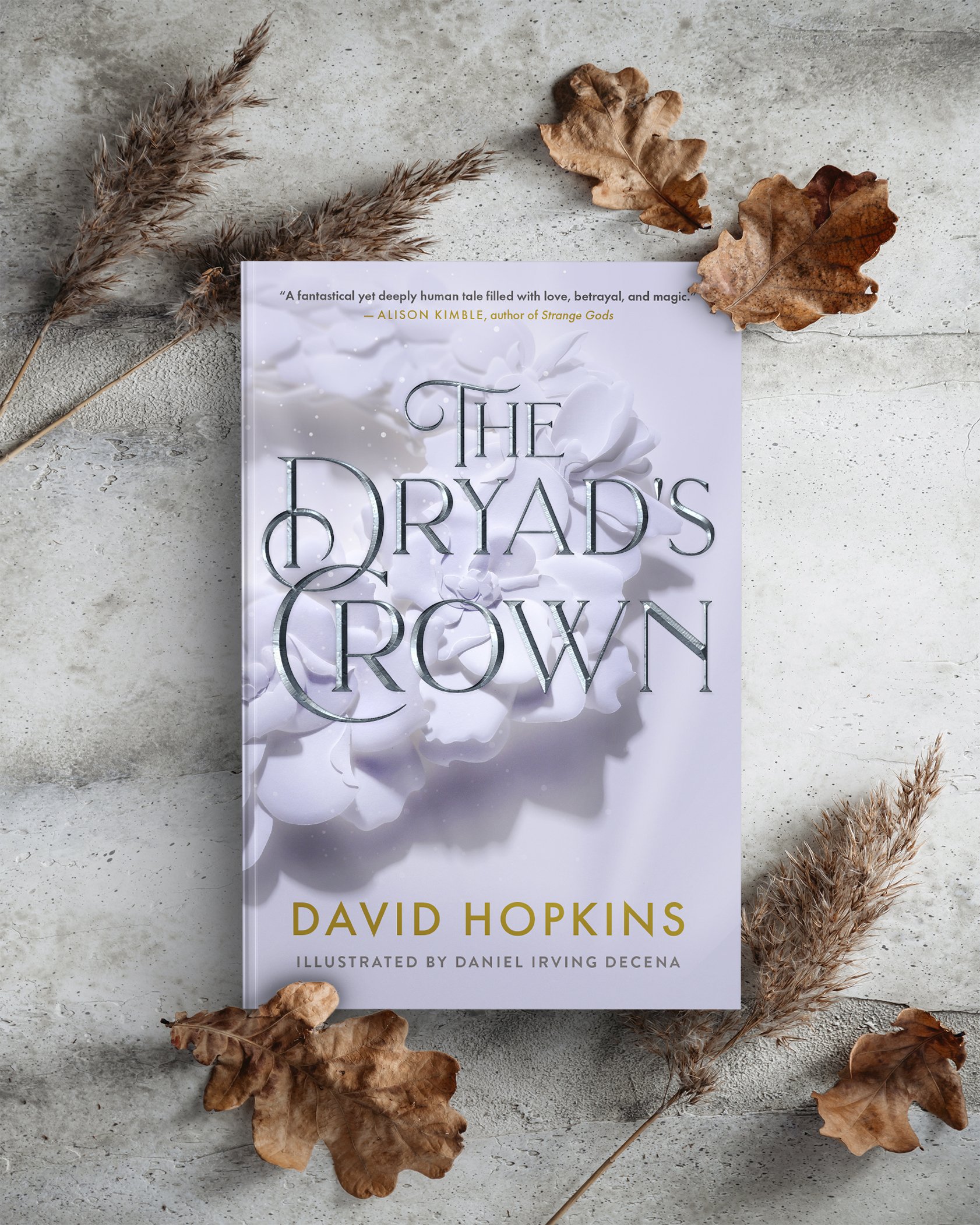I've come to a grim realization. Some of you arrived at this point well before I did, and some of you will never admit it.
After reading Death Note by Tsugumi Ohba and Takeshi Obata, Buddha and Astroboy by Osamu Tezuka, Akira by Katsuhiro Otomo, Yotsuba&! by Kiyohiko Azuma, Bleach by Tite Kubo, Ranma 1/2 by Rumiko Takahashi, Solanin by Inio Asano, and Pluto by Naoki Urasawa, I can see that the American comic book industry, as it currently exists, is screwed.
One thing is for certain, there is no stopping manga. And in the words of trusted TV personality Kent Brockman, "I, for one, welcome our new insect overlords."
The topic is nothing new. In fact, it may be a worn out discussion by now. Other people have responded to this issue over and over. I'm just crossing the line with my head bowed. Here are my eight reasons.
1. The Art. Unlike some, I do not believe the primary debate with American and Japanese comics should be about the art style, i.e. you prefer one over the other and that's that. It seems diplomatic enough. After all, you can't argue with personal taste. Right? I've heard the argument that manga is "more cartoony" with its "big eyes and everything." However, both Japanese and American styles cover a wide spectrum between abstract (i.e. cartoony) and realistic. It's not a matter of comparing Tezuka to Jack Kirby. In some ways, I find Kirby just as abstract as Tezuka. In the tradition of Japanese comics, the backgrounds tend to be more realistic in their rendering. With some American comics, the backgrounds are merely suggested by a few abstract lines. The cartoony/realistic dichotomy doesn't work for me. To lump all American artists under the influence of Kirby, it dismisses many indie creators who borrowed from Crumb or earlier cartoonists. (Tezuka, the godfather of Manga, was influenced by Walt Disney.) Saying that all manga art looks the same reveals an inherent failure to understand the nuances of the artform. Akin to saying all rock'n'roll music sounds the same.
I don't like the more spastic style of some manga artists (Tite Kubo, you know who you are), but others are absolutely breath taking (Inio Asano) -- and I would rather read their work than another Jim Lee or Marc Silvestri imposter.
2. The Name. This is a silly reason, but it warrants mention. American terms such as "funnies," "comics," and "comic books" all reference a time when said material was mostly humorous gag strips for kids. Terms like "graphic novel" and "illustrated novel" are ambiguous -- and do not refer to the medium as a whole. Yes, I know "manga" is the Japanese word for "comic book." However, at least, it doesn't carry the ambiguity. The problem we run into then is phrases like "Original English Language Manga" etc. Maybe we just can't win?
3. The Output. To me, this is where the entire debate hinges. It also affects reasons 4-8. Due to the studio system with Japanese comics, their output dwarfs our own. Yes, I realize comics like Spider-Man and Superman have been in existence for years -- but Naruto has 45 published volumes (the book premiered in 1999) with greater singular vision and consistency. Naruto is a popular example. Even the less popular books have an impressive output. (Prince of Tennis, 42 volumes?) In contrast, American artists routinely burn out after just a volume or two. Kazu explains it better than me. It's not that American artists are lazy. The opposite is true. We work too hard. In Japan, a single title will have an entire support staff of interns, artists, inkers, etc. Jeff Smith creates Bone. Charles Burns creates Black Hole. Terry Moore creates Strangers In Paradise. These are lifetime achievements they may never match again. I understand that it's like comparing apples and oranges. It's unfair to use mainstream properties like Superman and Spider-Man to prove my point, and then shift to something like Strangers In Paradise when it serves my argument on the other end. I guess that is my point: American comics do not have anything like this. Series like 100 Bullets, Y The Last Man, DMZ, or Walking Dead get close -- and maybe these examples invalidate my reason?
4. The Money. The reason for the studio format and the increased output? Money. The manga series Slam Dunk has sold over 100 million copies in Japan. Even with our most popular American comics, we can't get anywhere near these numbers. Manga creators are well paid. They are mentored and well trained. They produce great work. With most American comic book artists, they work multiple jobs to make ends meet. Is it any wonder the burn-out rate is so high? I have fantasies of winning the lottery so I can pay artists to go full time.
Also, on the financial front, manga sells at about $7.95 to $9.99 for 200+ pages of work. That is a great price point, and a hard one to beat. DC's defunct Minx imprint (one I hoped would survive) tried to mirror this pricing, but could never match manga's page count. Scott Pilgrim only broke the 200 page mark with volume four, and every volume in the series retails for $11.95. In fairness, Marvel's Essential series does give you the best "per page" value of anything I've seen.
5. Diversity of Readership. Sure, we have girls that read American comics. We have some kids that read comics, and we have older people who read comics. These people are still cherished minority to vast number of 20-to-30-year-old white males who consume most comics. (I say "cherished" because we need more of you!) In Japan? Everyone reads comics. It's an Utopian bizarro world where "mainstream" actually means "mainstream." In America, if you have a 16-year-old girl reading comics, I would laid easy odds that it's manga she's reading. Go to any Barnes & Noble or Borders. The manga section is two to three times the size of the American comic book section. And there is always a girl sitting on the ground, next to that section, reading something.
6. Genre Diversity. What came first: the diversity of readership or the genre diversity? A chicken and egg scenario. There must be a causal relationship between the two. If we look at American comics, our top sellers are super hero books. In Japan, the top-selling manga is about... basketball? I can't imagine Marvel or DC publishing a comic book about basketball. Oni Press, SLG, or Top Shelf would, but it probably wouldn't survive past the second volume. Independent and small press companies are our only avenue for genre diversity. (Interesting blog post about this issue.) The teen romance comedy genre is doing well in Japan -- easy money in any culture, if you ask me. In America, we have barely scratched the surface.
7. The Future. As a high school teacher, I can tell you the younger generation reads manga. Some speculate that when these kids mature they will turn to more sophisticated American comics. I would argue that when these kids grow up they will turn to more sophisticated manga. I don't see them switching over. They have too many options on their side to need American comics.
8. The Enjoyment. This reason is anecdotal, but one worth sharing. It's also the reason that scares me the most. I was reading Pluto by Urasawa. It occurred to me I was having more fun reading this book than any recent American comic book. Same with Death Note and all the other manga books I listed above. I'm enjoying manga more. Sad to say, I'm laboring through my unread pile of American comics. Sure, there are some great ones here and there. Nothing mind blowing. Maybe I'm in a funk? Maybe we're all stuck on the great works of comic book past? What's next? These Marvel and DC crossover events are dreadful. Indie comics are sluggish too. (Dang. I am not going to make any friends with this blog post, am I? I apologizee.) I need entertainment in my entertainment. The American comics are failing me.
To be optimistic, I could say that both manga and American comics will live together in peace -- but they won't. If the American industry continues on its path (monopolized distribution, lack of diversity, no long-term financial investment in talented artists), there will be a steady decline. We will be happy with readership in the hundreds and thousands, the occasional Hollywood film option. Manga will continue to rise. I can predict right now that manga will make an easier transition to the Kindle and other digital readers.
What's an American to do?
My advice is to dabble. There are profound cultural differences between America and Japan. Differences that made manga strong and American comics always floundering on the brink of obscurity. We can't reproduce the results by immediately copying their methods. However, if we look at the historical development of manga, we could learn a few things. American comic book creators could start dabbling in manga. Experimenting here and there. I know I am. Not for superficial reasons, but because I love some of these damn Japanese comics, and I believe I can compete with them. The success of Scott Pilgrim is due to the talent of Bryan Lee O'Malley. Oni Press should be applauded for championing someone so influenced by manga. Mainstream publishers need to see manga as something more than an art style. Marvel and DC need to diversity their line of genres. We need smaller publishers to get a larger market share. Publishing models like SHONEN JUMP magazine should be explored in earnest. OEL manga needs to improve -- good solid original stories and no more leaning on licensed property OEL like Ghostbusters and Star Trek. Artists need a good salary, good benefits, and an intern or two.
I realize I'm not a scholar on this issue. I sound like a johnny-come-lately. Please post your comments. Give me some hard facts if my assumptions are wrong or misguided. Disagree with me. I still adore American comics, but adapt or die. Those are our options.

